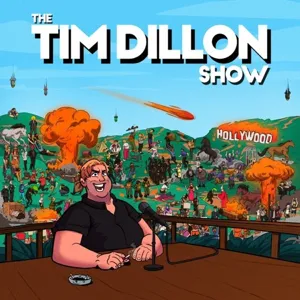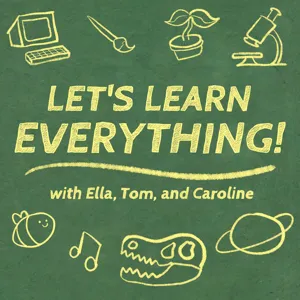Podcast Summary
Discovering Whales Through Sound: Whales are elusive but crucial marine creatures, studied through sounds like clicks and calls, contributing to ocean health and scientific understanding.
Whales, despite being the largest creatures in the sea, can be elusive to spot due to their vast ocean habitats. However, their importance in the ocean's ecosystem is significant, as marine biologist Asha De Vos discussed on the TED Radio Hour. Asha fell in love with whales not through sight but through sound, specifically the clicking noises made by sperm whales. Whales play a crucial role in the ocean's health, and their study can provide valuable insights into the underwater world. The BBC serves as a valuable resource for learning about these fascinating creatures and the world they inhabit, offering information and inspiration that encourages thought and exploration. Additionally, the Apple Card offers daily cash rewards for various purchases, and Integrative Therapeutics provides clinician-curated supplements for overall wellness.
Whales' role in the ocean ecosystem: Whales communicate, navigate, and echolocate using songs, their poop stimulates phytoplankton growth, and their migrations bring essential nutrients to the surface, benefiting the entire marine food chain.
Whales are not just beautiful creatures with complex songs, but they are also vital players in their ecosystem. Their songs help them communicate, navigate, and echolocate to find food. Whale poop, which is bright red due to their diet, is an essential clue for researchers to learn more about their feeding habits and is crucial for the growth of phytoplankton in the ocean. Whales' migrations and feeding patterns bring essential nutrients from the depths to the surface waters, stimulating the growth of the base of the marine food chain. In summary, whales' presence in the ocean is beneficial not only for their own survival but also for the entire ecosystem.
Whales' Role in Ocean Ecosystem: Whales transport nutrients and serve as a food source and carbon sink. Human activities have disrupted this balance, causing potential extinctions. Ocean health is interconnected, and addressing challenges requires recognizing marine life's role in ecosystems.
Whales play a crucial role in the health and balance of the ocean ecosystem. They transport nutrients through their feces and, after their death, provide a vital food source and carbon sink. However, human activities, particularly whaling, have disrupted this delicate balance and potentially led to extinctions of specialized species. The ocean's health is intricately connected, and the removal of whales, even centuries ago, had far-reaching consequences. Today, our oceans face numerous challenges, including overfishing, carbon emissions, and pollution. Yet, there's hope for recovery, and it's essential to recognize and address the interconnectedness of marine life and ecosystems.
The Save the Whales movement's impact on environmental protection: The Save the Whales campaign demonstrated the power of collective action and grassroots activism in protecting the environment and safeguarding marine ecosystems for future generations.
The Save the Whales movement in the 1970s serves as a powerful reminder of what can be achieved when people come together to protect the environment. The successful campaign against commercial whaling demonstrated the impact of collective action and grassroots activism. However, whales continue to face threats such as ship strikes, entanglement in fishing nets, and sound pollution. These issues highlight the importance of ongoing conservation efforts to safeguard marine ecosystems and the creatures that inhabit them. It's not just about saving marine life, but also preserving our planet for future generations. The Save the Whales campaign's legacy shows that when we raise our voices and take action, we can create lasting change. Let's continue to work together to address the challenges facing our oceans and ensure a sustainable future for all.
Impact of human activities on whales and the ocean: Reducing noise pollution and minimizing plastic waste are actions everyone can take to help protect whales and the ocean's health and wellbeing. Awareness of our connection to the ocean and collective action can make a difference.
The health and wellbeing of whales and other marine life are interconnected with our own, and human activities, including noise pollution, can have significant negative impacts on them. Whales rely on specific frequencies to communicate with each other, and excessive noise can make it difficult for them to find mates or communicate with their young. This can lead to stress, which in turn can impact their reproductive capabilities and overall health. The ocean, as the largest interconnected ecosystem on the planet, is affected by everything that enters it, no matter where we live. By being aware of this connection and taking steps to reduce our impact on the ocean, such as reducing noise pollution and minimizing plastic waste, we can all make a difference. The 9/11 study mentioned in the discussion highlights the potential for positive change when human activities are reduced, demonstrating the power of collective action. So, even if you don't live near an ocean, your actions can still have a ripple effect and contribute to the health and wellbeing of marine life.
Preserving the Ocean: Focus on the Magic: Focus on the ocean's magic, make small changes, and spread awareness to contribute to its preservation.
Each of us can make a difference in preserving the ocean and its incredible creatures by being mindful of our daily habits and sharing stories of conservation successes. Marine biologist Asha De Vos emphasizes the importance of focusing on the beauty and magic of the ocean and its inhabitants, rather than just the conservation issues that can create apathy. The ocean plays a crucial role in keeping us alive, and it's essential to remember the amazing things that happen within it. By making small changes in our lives and spreading awareness, we can contribute to the ongoing efforts to protect and conserve the ocean. You can listen to Asha De Vos' full talk on TED.com, and for more daily science news, listen to Up First, NPR's daily morning news podcast. Support for this podcast comes from Easycater, helping companies solve food needs with employee meal plans, on-site staffing, and concierge ordering support. Visit Easycater.com for more information.





